ACELA1444
Understand that language is used in combination with other means of communication, for example facial expressions and gestures to interact with others
Elaborations
- recognising the effect of words, symbols, gestures and body language on the way communications are received by others (Skills: Literacy, Critical and Creative Thinking)
- Free Plan
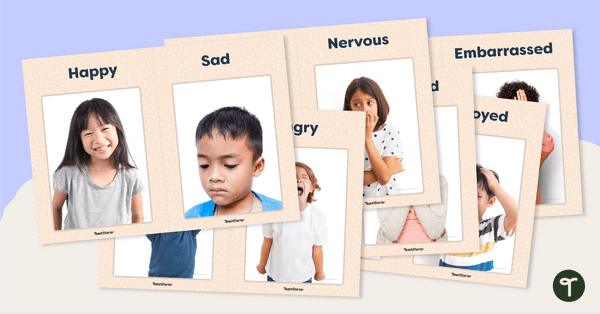
Recognising Feelings Flashcards
Improve your students' emotional literacy with this set of feelings flashcards.
- Free Plan
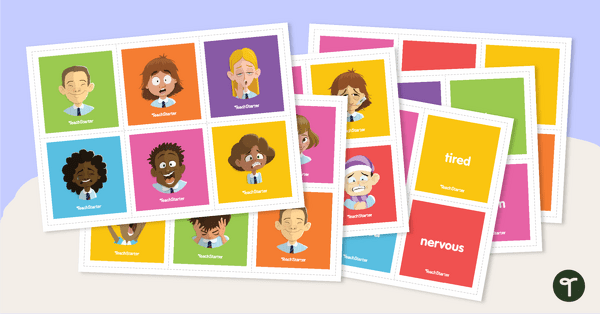
Feelings and Emotions Match-Up Activity
Help students to recognise and identify their feelings and emotions with this interactive match-up activity.
- Plus Plan
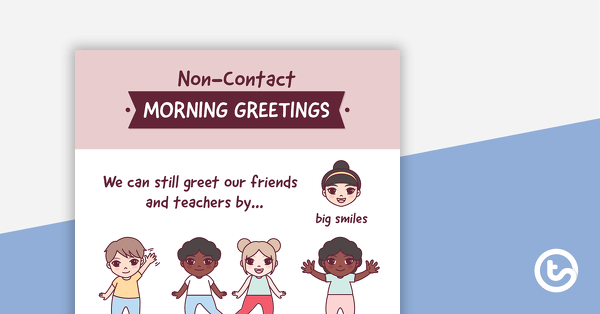
Non-Contact Morning Greetings Posters
Non-contact greetings that students can do with their teachers and peers.
- Plus Plan
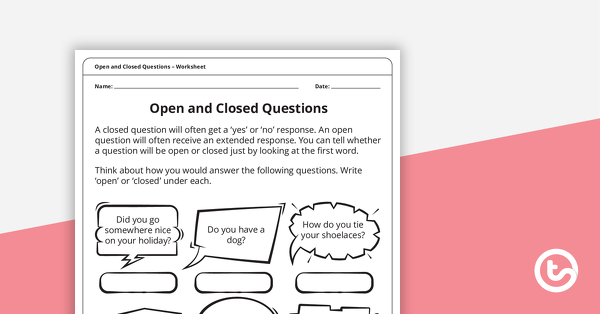
Open and Closed Questions – Worksheet
A worksheet for students to demonstrate their knowledge of open and closed questions.
- Plus Plan
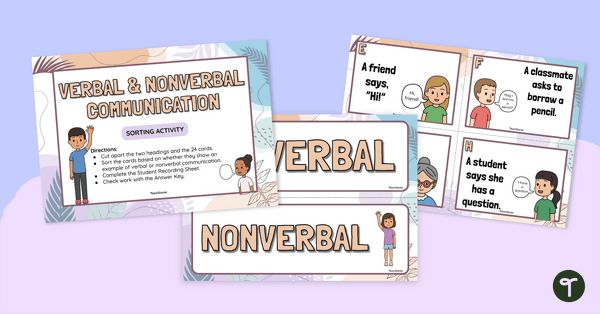
Verbal and Nonverbal Communication Sorting Activity
Use this sorting activity with your grade one and grade two students to practise differentiating between verbal and nonverbal communication methods.
- Plus Plan
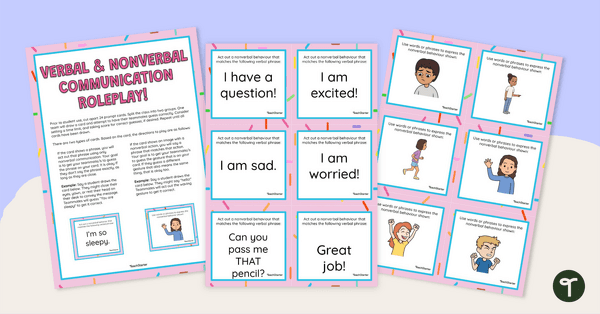
Verbal and Nonverbal Communication Roleplay Game
Use this active learning game to allow students to practise communication verbally and nonverbally, and interpret different verbal and nonverbal messages.
- Plus Plan
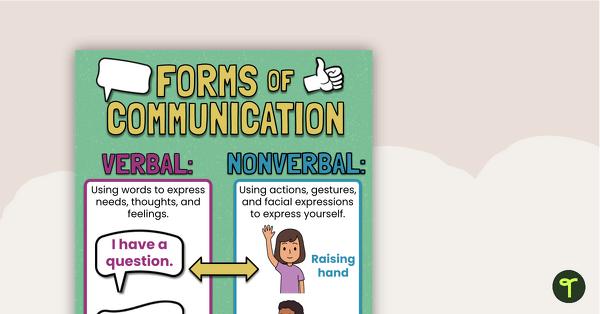
Verbal and Nonverbal Communication Poster
Teach your young students the key to communication by starting with the basics — the difference between verbal and nonverbal communication methods.
- Plus Plan
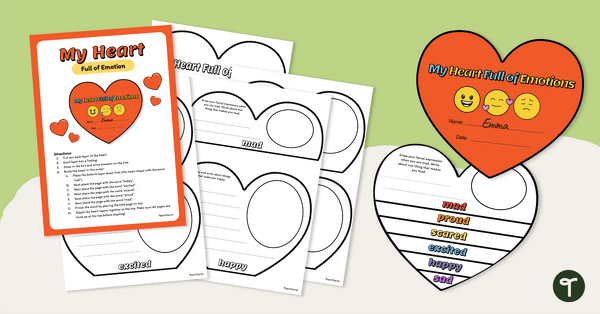
My Heart Full of Emotions Activity
Promote mindfulness and self reflection by writing out descriptions of different emotions.